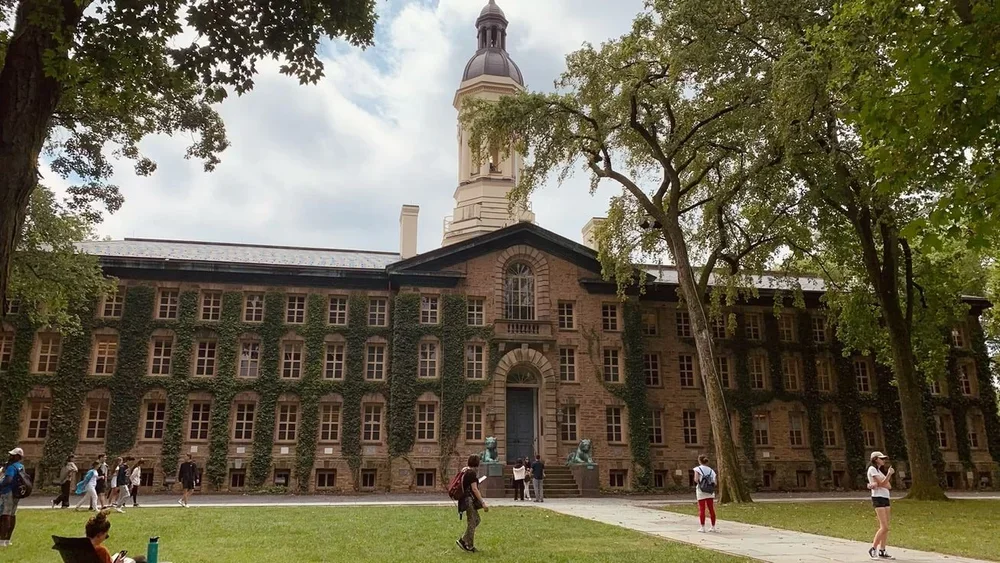University of Pennsylvania Supplemental Essay Prompts 2025–2026
Maybe when you first pictured Penn, it wasn’t just the campus — it was the city. Locust Walk buzzing at lunchtime, the skyline framing Franklin Field, the way a conversation in one class spills into a café on Walnut Street. Penn is defined by motion: between schools, between ideas, between people whose paths would never cross anywhere else. For you, the application is where that motion begins.
Penn’s prompts are short, but they’re not small. They’re designed to reveal how you carry gratitude, how you build community, and how your intellectual energy aligns with the school you’ve chosen. Here’s how to approach each one with clarity and depth:
Here is how to approach each prompt with clarity, depth, and substance.
1. The Thank-You Note (150–200 words)
Vision: Gratitude shows what you value and whose impact you recognize, especially when it is someone overlooked.
Guidance: Rather than thanking the obvious teacher or coach, choose someone whose influence was subtle but lasting. For example, you might write to the janitor who left lights on after hours so your robotics team could finish testing, teaching you that progress depends on invisible labor. Or you might write to a sibling who teased you until you sharpened your arguments, making you the debater you are today. Perhaps it is a neighbor who taught you how to tend a garden, showing you that patience is an active form of discipline.
Why it works: The strongest thank-you notes move past sentiment and into proof. By anchoring your gratitude in specific actions, you show Penn what kind of impact you notice and what lessons you carry forward.
2. Exploring Community at Penn (150–200 words)
Vision: Penn’s community is built through action across difference. This prompt asks you not only how you will join but how you will shape it.
Guidance: Focus on habits you already practice. For example, during remote learning you might have created shared study guides filled with explanations and humor to keep classmates engaged. Or you might have organized a multilingual poetry circle, realizing that translation can be both bridge and barrier. Perhaps you moderated an online forum where you learned how fragile — and how precious — consensus can be.
Why it works: Penn wants to see that community-building is not just a goal but a habit. By tracing the line from what you have already done to how you will engage on Locust Walk, in Houses, and in seminars, you make your contribution tangible.
3. School-Specific Prompts
Each undergraduate school’s prompt is asking the same core question: Can you connect lived experience to intellectual curiosity, and then show how Penn is the place where that connection grows deeper?
College of Arts & Sciences
A student who digitized family letters and overlaid them on census data might connect that project to history and data science. Another who tested river chemistry after a local spill could link science to policy. Penn’s open curriculum allows you to pursue questions across departments, turning curiosity into a discipline.
Wharton
A student who tracked why local family-owned businesses closed during the pandemic might connect that database to Wharton’s focus on markets and systems. The key is showing that you already use frameworks to decode complexity and that Wharton provides the structure to expand that work.
Engineering
A student who repurposed e-waste into low-cost chargers or coded an app to track storm-related power outages demonstrates the mindset of design under constraint. Penn Engineering offers the tools and labs to refine those instincts into scalable solutions.
Nursing
A student who translated medical pamphlets for immigrant families has already experienced how language access directly impacts health. Penn Nursing allows that lived perspective to scale into science, practice, and advocacy.
Why it works: School-specific essays succeed when they avoid catalogues of interests and instead reveal one through-line: a real problem, your first attempts to tackle it, and how Penn equips you to take it further.
Every Penn prompt circles back to one truth: proof beats promise. A thank-you note with detail proves gratitude in action. A community essay with habits proves leadership in motion. A school-specific essay tied to lived experience proves curiosity with receipts.
Admissions officers are not looking for rehearsed pitches. They are looking for students who have already begun becoming the kind of thinkers, doers, and connectors Penn values.
At Ivy Link, we help students refine that lens — transforming raw stories into essays that are sharp, specific, and compelling. Founded by Adam Nguyen, a Columbia graduate and former admissions reader, our team draws on the Ivy Link Method — a blend of strategy, research, and mentoring — to guide students from first draft to final polish. Proof always beats promise, and that’s the standard we bring to every student we work with.
If Penn is where your vision points, or if you are mapping a multi-Ivy strategy, Ivy Link is here to help you approach the process with confidence and clarity.


